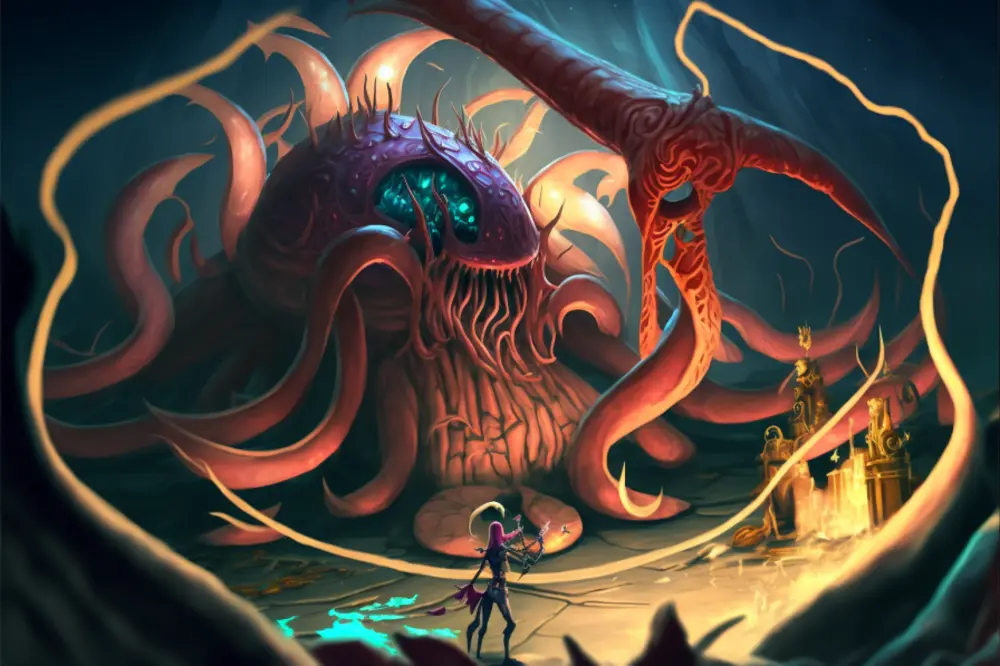Massively Multiplayer Online Role-Playing Games (MMORPGs) have become a global phenomenon, with millions of players exploring virtual worlds that span different genres, themes, and styles.
A defining element of successful MMORPGs is the incorporation of diverse cultural influences into game design and storytelling. By blending global trends and cultural motifs, developers can create immersive environments that resonate with a worldwide audience.
This article explores how MMORPG developers incorporate global cultures into their designs and storytelling, shaping rich, complex game worlds that reflect real-world diversity.
The Power of Mythology and Folklore
One of the most prominent ways in which culture influences MMORPG design is through the integration of mythology and folklore from different regions of the world. Games like MMO champion, Final Fantasy XIV, and The Elder Scrolls Online borrow heavily from mythological traditions, reimagining deities, heroes, and ancient tales to create compelling narratives.
For example, World of Warcraft draws inspiration from Norse, Celtic, and Greco-Roman mythology, allowing players to interact with gods, mythical creatures, and legendary figures within the game’s expansive universe.
These mythologies lend a sense of depth and history to the game world, allowing players to feel as if they are participating in something ancient and profound. Similarly, Final Fantasy XIV incorporates mythological elements from Japanese folklore, such as the kami (spirits) and yokai (demons), weaving them into the game’s rich tapestry of storytelling.
By pulling from various cultural myths, MMORPGs create worlds that feel familiar yet fantastical, giving players the opportunity to engage with legendary stories in new and interactive ways. These mythological influences also encourage cross-cultural appreciation, as players are exposed to stories and legends they may not have encountered otherwise.
Global Architecture and Aesthetics
Cultural influence in MMORPGs is not limited to storytelling but extends deeply into world design and architecture. Developers often look to real-world landmarks and architectural styles to create their in-game cities, towns, and environments. This approach lends a sense of authenticity and uniqueness to each game’s design, as players explore areas inspired by different parts of the globe.
For example, in Guild Wars 2, the city of Divinity’s Reach is modeled after Renaissance and Gothic architecture, featuring grand spires, intricate detailing, and sprawling plazas reminiscent of European cities like Florence or Prague. On the other hand, the Mists in Final Fantasy XIV showcase a distinctly East Asian aesthetic, with pagodas, lanterns, and serene gardens inspired by Japanese and Chinese design.
Multicultural Representation in Characters
Character creation and customization in MMORPGs offer another avenue for cultural expression. Many modern games are moving towards inclusivity, offering players options that reflect a broad spectrum of ethnicities, skin tones, and cultural backgrounds. This shift allows players to see themselves represented in the virtual worlds they inhabit and contributes to a more inclusive gaming experience.
Games like Black Desert Online and Elder Scrolls Online excel in offering a diverse range of character customization options, allowing players to choose from a variety of hairstyles, skin tones, and features inspired by different global cultures, including anime hairstyles IRL. This level of customization empowers players to create avatars that represent their cultural identity or experiment with new cultural expressions.
Moreover, MMORPGs often include non-playable characters (NPCs) who embody different cultures, further enhancing the game’s diversity. In Final Fantasy XIV, for example, players encounter characters from various regions with distinct cultural practices, dress, and speech patterns. This multicultural representation enriches the narrative, making the world feel more varied and reflective of our global society.
Global Trends in MMORPG Themes
As global trends shift, so too do the themes that dominate MMORPGs. Over the years, we’ve seen a move from traditional fantasy themes to include elements of cyberpunk, steampunk, and post-apocalyptic settings, each reflecting societal interests and concerns at the time.
For example, the rise of environmental consciousness has influenced MMORPGs like Final Fantasy XIV and Guild Wars 2, where themes of ecological balance, climate change, and the preservation of nature are woven into the core storyline. These themes resonate with global trends toward sustainability and environmental responsibility, encouraging players to reflect on real-world issues as they interact with the game.
Similarly, the growing influence of science fiction and technology in society has led to the emergence of cyberpunk-themed MMORPGs like The Ascent, where players navigate a dystopian future shaped by corporate control and advanced technology. Developers such as riot games MMO are continually pushing the boundaries of what can be done with futuristic settings and global narratives.
Economic Trends and Player Behavior
Another aspect of global influence in MMORPGs is seen in how economic trends shape in-game currencies and player behavior. Developers integrate real-world economics into game design, with features like trading systems, in-game shops, and microtransactions. For example, offering incentives such as a match deposit bonus allows developers to replicate real-world marketing trends and promotional strategies, encouraging players to spend and invest in the game world.
Conclusion
The influence of global cultures in MMORPG design and storytelling is a testament to the power of games as a medium for cultural expression. Through the integration of mythology, architecture, language, and representation, MMORPGs create rich, immersive worlds that resonate with players from diverse backgrounds.
As global trends continue to evolve, so too will the design and themes of these virtual worlds, reflecting the ever-changing landscape of real-world cultures. By embracing these influences, MMORPGs not only entertain but also educate and foster a deeper understanding of the global society in which we live.


